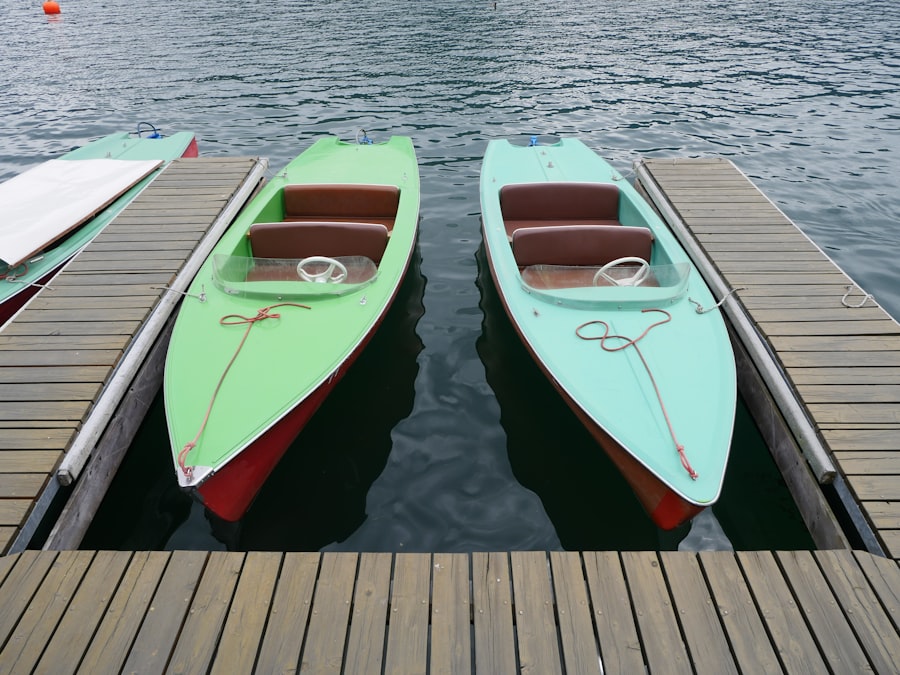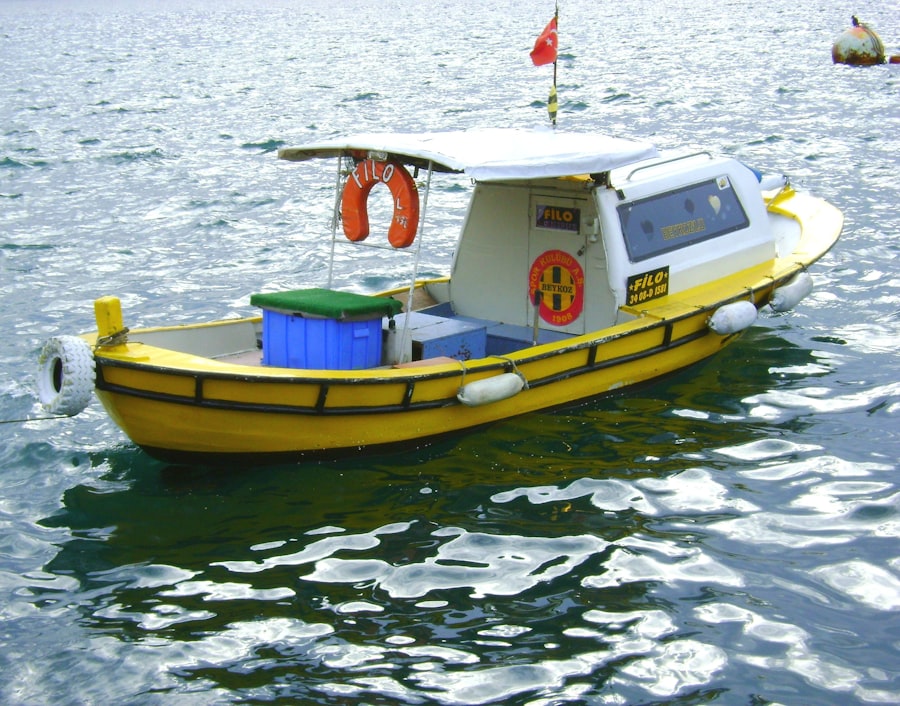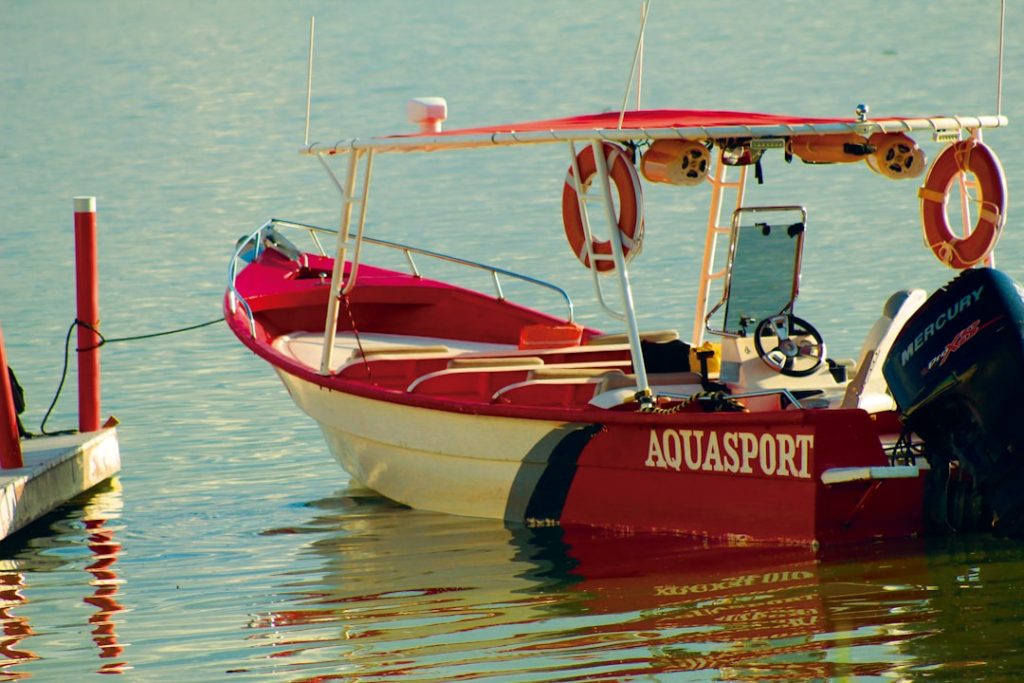When embarking on the journey of selecting a boat motor, the first step is to thoroughly understand your specific needs. The type of boating activities you plan to engage in will significantly influence your choice. For instance, if you are an avid fisherman who frequents calm lakes, a smaller, quieter motor may suffice.
Conversely, if you envision thrilling adventures on open waters or long-distance cruising, a more powerful outboard or inboard motor would be essential. Additionally, consider the size and weight of your boat, as these factors will dictate the appropriate motor specifications. Another critical aspect to consider is the frequency of use.
If you plan to use your boat regularly, investing in a high-quality motor that offers reliability and durability is paramount. On the other hand, if your boating activities are infrequent or limited to short excursions, a less expensive option may be more suitable. Furthermore, think about the type of water conditions you will encounter.
Saltwater environments can be particularly harsh on motors, necessitating corrosion-resistant materials and components. Understanding these nuances will help you make an informed decision that aligns with your boating lifestyle.
Key Takeaways
- Assess your specific boating needs before choosing a motor.
- Research reputable boat motor brands to ensure quality and reliability.
- Set a clear budget to narrow down motor options effectively.
- Compare motor types, sizes, and horsepower to match your boat’s requirements.
- Consider fuel efficiency, environmental impact, and extra features when making a purchase.
Researching Top Boat Motor Brands
Once you have a clear understanding of your needs, the next step is to delve into the world of boat motor brands. The market is populated with numerous manufacturers, each offering a range of products that cater to different boating requirements. Some of the most reputable brands include Yamaha, Mercury, Honda, and Suzuki.
These companies have established themselves as leaders in the industry due to their commitment to quality, innovation, and customer satisfaction. Yamaha, for instance, is renowned for its advanced engineering and reliability. Their four-stroke outboard motors are particularly popular among recreational boaters for their fuel efficiency and quiet operation.
Mercury, on the other hand, is celebrated for its high-performance motors that cater to speed enthusiasts and competitive boaters. Honda is often lauded for its environmentally friendly options, while Suzuki offers a balance of power and affordability. Researching these brands involves not only examining their product offerings but also reading customer reviews and expert opinions to gauge performance and reliability.
Determining Your Budget for a Boat Motor

Budgeting for a boat motor is a crucial step that requires careful consideration of both initial costs and long-term expenses. The price range for boat motors can vary dramatically based on factors such as brand, type, horsepower, and additional features. Entry-level motors may start at a few hundred dollars, while high-performance models can exceed several thousand.
It’s essential to establish a budget that reflects not only your financial capacity but also the value you place on quality and performance. In addition to the purchase price, consider ongoing costs such as maintenance, fuel consumption, and insurance. A more powerful motor may offer superior performance but could also lead to higher fuel expenses and maintenance requirements.
Therefore, it’s wise to factor in these potential costs when determining your budget. Additionally, explore financing options or second-hand markets if you are looking for more affordable alternatives without compromising on quality.
Comparing Different Types of Boat Motors
| Motor Type | Power Source | Typical Power Range (HP) | Fuel Efficiency | Noise Level | Maintenance | Environmental Impact | Cost Range | Common Uses |
|---|---|---|---|---|---|---|---|---|
| Outboard Motor | Gasoline | 2 – 350 | Moderate | Moderate to High | Moderate | Moderate emissions | Low to High | Fishing, Recreational boating |
| Inboard Motor | Gasoline/Diesel | 50 – 1000+ | Moderate to Low | High | High | Higher emissions | Medium to High | Speedboats, Yachts |
| Electric Motor | Electric Battery | 1 – 100 | High | Low | Low | Zero emissions | Medium to High | Small boats, Kayaks, Dinghies |
| Stern Drive (Inboard/Outboard) | Gasoline | 135 – 600 | Moderate | Moderate | Moderate to High | Moderate emissions | Medium to High | Recreational boats, Ski boats |
| Jet Drive | Gasoline/Diesel | 60 – 300 | Low to Moderate | High | High | Moderate emissions | High | Jet boats, Rescue boats |
Boat motors can be broadly categorized into two main types: outboard motors and inboard motors. Outboard motors are mounted externally on the transom of the boat and are favored for their ease of installation and maintenance. They come in various sizes and horsepower ratings, making them suitable for a wide range of boats from small fishing vessels to larger recreational crafts.
Their portability allows for easy removal and storage when not in use. In contrast, inboard motors are installed within the hull of the boat and are typically used in larger vessels such as yachts or performance boats. They offer advantages in terms of weight distribution and stability but can be more complex to maintain due to their enclosed nature.
Additionally, there are also sterndrive motors that combine elements of both outboard and inboard designs, providing versatility for boaters who seek a balance between performance and convenience. Understanding these distinctions will help you choose the right type of motor based on your specific boating needs.
Finding the Right Size and Horsepower for Your Boat
Selecting the appropriate size and horsepower for your boat motor is critical for optimal performance and safety. The size of the motor should correspond with the weight and dimensions of your boat; an undersized motor may struggle to propel the vessel effectively, while an oversized motor can lead to instability and excessive fuel consumption. Most manufacturers provide guidelines regarding the recommended horsepower range based on the boat’s length and weight.
For example, a small fishing boat measuring around 14 feet may require a motor with 15 to 30 horsepower, while a larger cruiser measuring 25 feet or more might need upwards of 200 horsepower for adequate performance. It’s also important to consider how many passengers you typically carry and any additional gear or equipment that may affect weight distribution. Consulting with experienced boaters or professionals at marine dealerships can provide valuable insights into selecting the right size and horsepower for your specific vessel.
Considering Fuel Efficiency and Environmental Impact

In today’s environmentally conscious world, fuel efficiency has become a significant consideration when selecting a boat motor. Modern advancements in technology have led to the development of motors that not only deliver powerful performance but also minimize fuel consumption and emissions. Four-stroke engines are generally more fuel-efficient than their two-stroke counterparts, making them a popular choice among eco-conscious boaters.
Moreover, many manufacturers are now focusing on producing motors that comply with stringent environmental regulations. For instance, some brands have introduced direct fuel injection systems that optimize combustion efficiency, resulting in lower emissions without sacrificing power. When evaluating fuel efficiency, it’s also essential to consider how your boating habits impact overall consumption; cruising at moderate speeds rather than full throttle can significantly reduce fuel usage while extending your range on the water.
Exploring Additional Features and Accessories
As you narrow down your options for a boat motor, it’s worth exploring additional features and accessories that can enhance your boating experience. Many modern motors come equipped with advanced technology such as digital throttle control, which allows for smoother acceleration and deceleration. Some models also offer integrated GPS systems that provide real-time data on speed, fuel consumption, and navigation.
Furthermore, consider accessories such as propellers designed for specific water conditions or performance enhancements like hydrofoils that improve stability and reduce drag. Safety features like kill switches or remote start systems can also add peace of mind while out on the water. Investing in these additional features can elevate your boating experience by providing greater control, safety, and convenience.
Where to Buy Top Quality Boat Motors
Finding a reputable source for purchasing a boat motor is essential to ensure you receive a quality product backed by reliable service. Authorized dealerships often provide a wide selection of motors from various brands along with knowledgeable staff who can assist you in making an informed decision based on your needs. These dealerships typically offer warranties and after-sales support that can be invaluable should any issues arise.
Alternatively, online marketplaces have become increasingly popular for purchasing boat motors due to their convenience and competitive pricing. Websites like eBay or specialized marine retailers allow you to compare prices across different brands and models easily. However, when buying online, it’s crucial to verify the seller’s reputation through customer reviews and ratings to avoid potential pitfalls associated with purchasing from unverified sources.
Whether you choose a local dealership or an online platform, ensuring that you buy from a trusted source will contribute significantly to your overall satisfaction with your new boat motor.


